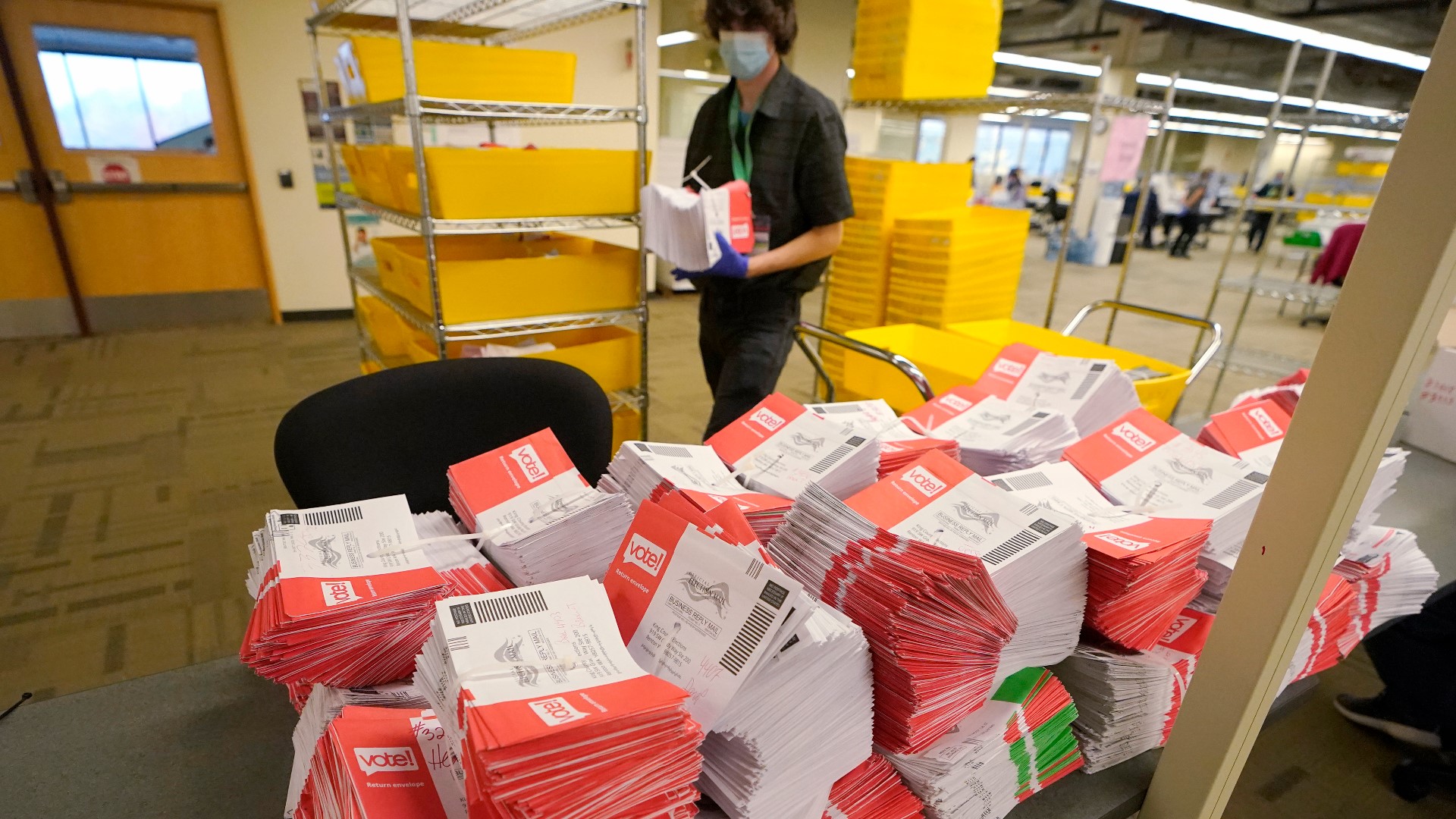SEATTLE — More than 1 million King County voters can cast their vote electronically for a special election race.
Eligible voters within the King Conservation District can vote for a board supervisor position using a pilot program that provides technology from the Seattle-based company Democracy Live.
"How can we get more people involved in the democratic process and vote? That was really the catalyst," said Democracy Live President and CEO Bryan Finney.
The technology Finney's company developed is called OmniBallot. It was introduced in King County in 2020.
For the second time, the King Conservation District is using it to elect one of its supervisors. People can visit the site to print a ballot or fill one out electronically. Finney believes the race will see record turnout.
Voters use their name and birthdate to login to a secure site where they can cast their vote, electronically sign their name, and submit their ballot to a cloud-based system. King County Elections then prints a ballot with the marked votes and staff verify the electronic signature.
"One of the biggest lessons we've learned is surprisingly - so far at least - the signature you sign on your pad is slightly higher in terms of fidelity to the signature they have on file at King County Elections," Finney said. "So, it's far less than one percent that's rejected."
The 2020 presidential election brought a wave of misinformation about election security. Finney acknowledges that's been a challenge when working to expand mobile voting. He says the systems is currently used in more than five states, but the King Conservation District is the largest race, using the technology with approximately 1.2 million voters.
The King Conservation District is a natural resource agency overseen by the Washington State Conservation Commission to promote sustainable use of natural resources. KING 5 reached out to the four candidates in the race. Three responded and said they'd prefer the race was on a physical ballot.
"The [King Conservation District] election gets a very small turnout, and offers a confusing process for voters. Voters need to navigate to a specific site, submit their vote, and then click through additional screens and try and sign their ballot with a computer mouse ... hurdle after hurdle, and a non-starter for people who don't have access to internet," said candidate Tripp Williams.
Candidates Barbara Roessler and Kristin Haugen, who currently holds the seat, also voiced concerns about turnout.
"Before I joined the board in 2020, the conservation district used a private company to run elections. Now, at least ballots are counted by King County Elections," Haugen said.
There would need to be a change in state law to add the King Conservation District race to the mailed ballot.
Finney believes the pilot program helps educate the public about mobile voting and can improve voter turnout.
"This next generation, if we want them to continue to participate in the democratic process, we have to start speaking their language and their language is mobile," Finney.
Cyber security experts have been review the technology. Finney shared a report from the University of Washington's Center for Information Assurance and Cybersecurity. The report encouraged more funding and research towards cloud-based ballot transmission and called the system a "critical component of elections infrastructure."
"We think that this is the future of voting, not just for this type of election, but potentially for 200 million voters moving forward," Finney said.

